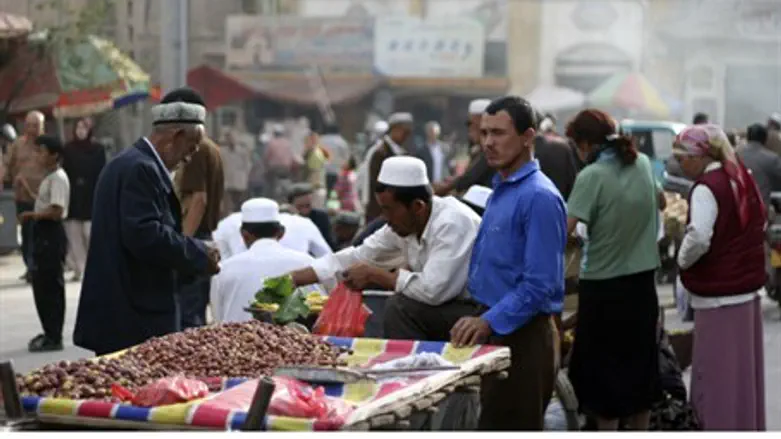
China has employed an unusual method in trying to crack down on Muslim violence and attacks by Uyghurs in the western Xinjiang region - in a new notice, it has ordered Muslim merchants to sell alcohol prominently to "weaken" Islam, which forbids the consumption of alcohol.
In the Xinjiang Uyghur Autonomous Region separatist Sunni Muslim Uyghur factions have conducted numerous attacks, including those with guns and explosives. China has cracked down in response and is trying to have them blacklisted as terrorists, although much of the international community has denounced the Chinese actions accusing the state of repression.
In its latest move, Chinese authorities ordered all Muslim store and restaurant owners in the village of Aktash to sell five types of alcohol and cigarettes, and to display them in "eye-catching displays," reports Radio Free Asia (RFA) as cited by the Washington Post.
The notice warns that, "anybody who neglects this notice and fails to act will see their shops sealed off, their businesses suspended, and legal action pursued against them."
RFA noted that Hotan prefecture in Xinjiang, which is where Aktash is found, has become "a hotbed of violent stabbing and shooting incidents between ethnic Uyghurs and Chinese security forces."
The move clearly seeks to crack down on Muslim influence and fundamentalism; just this January, China reported that 300 citizens, most of them likely Uyghurs, had gone to join Islamic State (ISIS) in Syria and Iraq via Malasyia.
Adil Sulayman, a Communist Party official in Aktash, told RFA that local authorities consider Uyghurs who do not smoke due to religious rulings forbidding smoking to be following "a form of religious extremism," and issued the new notice to block growing Muslim religiosity that was "affecting stability."
The official, representing the secular Communist Party ruling China, said, "we have a campaign to weaken religion here, and this is part of that campaign."
Sulayman added that thus far around 60 shops and restaurants had followed the order, and no protests have yet been reported.
The notice is the latest in a series of steps China has taken to try and lessen Islam's influence in Xinjiang.
Past moves have included banning government employees and children from going to mosques or observing Ramadan, the Muslim month of fasting. Women are also blocked from wearing Muslim veils covering their faces in various places, and men have been encouraged against growing long beards.